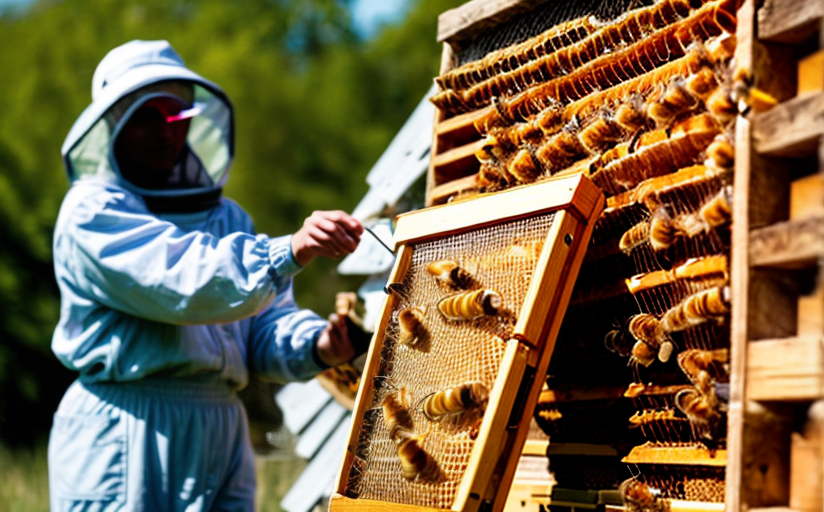The Impact of Technology on Beekeeping Practices
Over the years, the field of beekeeping has seen significant transformations brought about by modern technological advancements. While traditional beekeeping practices were mainly labor-intensive and required close monitoring, technology has revolutionized this practice, leading to increased efficiency in hive management, bee health, and honey production. This article explores how these advancements have shaped the field of beekeeping, the impact on bees and beekeepers, and how technology boosts bee conservation efforts for the future of our ecosystem.
Technological Advancements in Beekeeping
Several technological advancements have influenced modern beekeeping, ranging from advancements in hive monitoring to sustainable practices. The development of beekeeping apps, sensor technologies, and data analytics have jammed the bridge in the gap between traditional practices and modern beekeeping.
Beehive Monitoring
Digital technology has played a significant role in hive monitoring, with advanced sensors and tracking tools. Instead of the traditional method of manually checking each hive, digital sensors inform beekeepers about hive status on their digital devices by monitoring temperature, humidity, honey production, and population growth. This not only saves time and labor but also minimizes disruption to the bees.
Bee Health and Honey Production
Bee health is a major concern in beekeeping. Advancements like infrared cameras and acoustic sensors aid in disease detection, hence promoting bee health, which is beneficial for both the bees and honey production. Beekeepers can now detect diseases early on, enabling them to take timely action and protect their colonies.
The Impact of Technology
While technology has immensely benefited the practice of beekeeping, it's crucial to evaluate its potential adverse effects on the natural behaviors of bees. Some technological tools may disrupt the bees' foraging patterns and breeding behaviors due to electromagnetic interference. Thus, manufacturers should consider these potential impacts when developing new tools & technologies.
Technology and Bee Conservation
Technological advancements have also extended towards boosting bee conservation efforts. By tracking and studying bees using technologies like GPS trackers, scientists can uncover patterns and behaviors that may be vital in protecting and growing bee populations. Thus, technology is not only helping in honey production but also being a significant player in conserving these crucial pollinators.
The Future of Beekeeping
Innovation in technology continues to revolutionize beekeeping. As we move towards more sustainable and eco-friendly practices, these advancements will be integral in ensuring the future of bees and our ecosystem. Though there may be challenges, potential solutions embracing technology will lead to better outcomes for both bees and beekeepers in the future.
In conclusion, modern technological advancements have redefined the field of beekeeping. The rapid growth in technological applications for beekeeping signals a beneficial shift towards improved hive management, bee health, honey production, and bee conservation efforts. With responsible application and conscientious execution, these advancements will continue to shape the future of beekeeping and our ecosystem.



















Comments
Leave a Comment